第32章
DANGERS OF MEDIUMSHIP A few testimonies will show that when one gives himself or herself up to the control of the spirits, such ones take a most perilous position. The spirits insist on their victims becoming passive, ceasing to resist, and yielding their whole wills to them. Some of their persuasive words are these: "Come in confidence to us;" "Let our teachings deeply impress you;""You must not doubt what we say;" "Learn of us;" "Obey our directions and you will be benefited;" "Seek to obtain knowledge of us;" "Have faith in us;" "Fear not to obey;" "Obey us and you will be greatly blessed;" etc., etc. Mesmerists operate in the same way. They gain control of their subjects in the same way that the spirits mesmerize their mediums and when under Page 111 their control, the spirits cause them to see whatever they bring before them, and hear according to their wills, and do as they bid. And the things they suppose they see and hear, and what they are to do, are only such things as exist in the mind of the mesmerizing power. The subject is completely at the mercy of the invisible agency; and to put one's self there is a most heaven-daring and hazardous act. Mr. Hudson ("Law of Psychic Phenomena,"p. 336) says: -- "To the young whose characters are not formed, and to those whose notions of morality are loose, the dangers of mediumship are appalling." To further gain the confidence of mortals, the spirits claim to be the ones who answer their prayers. lit "Automatic Writing," p. 142, we have this:-- " Ques. -- Will our friends tell us whether from their point of view, there is any real efficacy in prayer?
" Ans. [by spirits].-- Shall not 'a soul's sincere desire' arouse ill discarnate and free spirits effort to make that sincere desire a reality?
What good can come from aspirations on mortal planes, save through the efforts to make those aspirations realized on spiritual planes, by the will of freed spirits?" Mediums are unable to resist the powers of the unseen world when once under their control. Professor Brittan (" Telegraphic Answer to Mahan," p. 10), concerning mediumship, says: -- "We may further add in this connection that the trance mediums for spirit intercourse are equally irresponsible. Many of them are totally unable to resist the powers which come to them from the invisible and unknown realms." Page 112 Dr. Randolph ("Dealings with the Dead," p. 150) shows the dangers of mediumship, as follows: -- "I saw that one, great cause of the moral looseness of thousands of sensitive-nerved people on earth, resulted from the infernal possessions and obsessions of their persons by delegations from those realms of darkness and (to all but themselves) unmitigated horror. A sensitive man or woman -- no matter how virtuously inclined -- may, unless by constant prayer and watchfulness they prevent it and keep the will active and the sphere entire, be led into the most abominable practices and habits." This same writer, in the same work, pp. 108, 109, says:-- "Those ill-meaning ones who live just beyond the threshold, often obtain their ends by subtly infusing a semi-sense of volitional power into the minds of their intended victims, so that at last they come to believe themselves to be self-acting, when in fact they are the merest shuttlecocks bandied about between the battledores of knavish devils on one side, and devilish knaves upon the other, and between the two the poor fallen wretches are nearly heart-reft and destroyed." A work by A. J. Davis called "The Diakka, and their Earthly Victims," mentions the nature of these denizens of the spirit world, and their wonderful location.
The country (to speak after the manner of men) which they inhabit, is so large that it would require not less than 1,803,026 diameters of the earth to span its longitudinal extent. This he had from a spirit he calls James Victor Wilson, a profound mathematician! This space is occupied by spirits who have passed from earth, who are " morally deficient" and affectionally unclean."-- Page 113 Page 7. The same spirit, Wilson, describes the diakka as those "who take insane delight in playing parts, in juggling tricks, in personating opposite characters to whom prayers and profane utterances are of equi-value;surcharged with a passion for lyrical narrations; one whose every attitude is instinct with the schemes of specious reasoning, sophistry, pride, pleasure, wit, subtle convivialities; a boundless disbeliever, one who thinks that all private life will end in the all-consuming self-love of God."-- Page 13 . On page 13 he says further of them, that they are "never resting, never satisfied with life, often amusing themselves with jugglery and tricky witticisms, invariably victimizing others; secretly tormenting mediums, causing them to exaggerate in speech, and to falsify in acts; unlocking and unbolting the street doors of your bosom and memory; pointing your feet into wrong paths, and far more."What this "far more" is, we are left to conjecture. The advertisement of this book says that it is "an explanation of much that is false and repulsive in Spiritualism." W. F. Jamieson, in a Spiritualist paper, called these diakka "a troop of devils," and quoted Judge Carter as saying: "There is one thing clear, that these diakka, or fantastic or mixed spirits, are very numerous and abundant, and take any and every opportunity of obtruding themselves."Hudson Tuttle, author of "Life in Two Spheres" and other Spiritualistic works, speaks of "a communication, through a noted medium, to Gerald Page 114 Massey from his 'dog Pip,' the said Pip 'licking the slate and writing with a good degree of intelligence.'" He adds, "Mr. Davis would say that 'Pip' was a 'diakka,' and to-morrow he will communicate as George Washington.